Note: Auto Trader is not a commercial partner of Motorway. The information provided in the article below is correct as of the 15th March, 2024.
Auto Trader started out as a printed magazine available in newsagents from the late 1970s. The magazines were localised by region and their main content was used car classifieds from – and for – private individuals.
It’s now one of the dominant online marketplaces in the UK’s used car market, and in January 2024 hit a record 85.5 million monthly visits. Autotrader has successfully managed to incorporate trade business with the consumer listings that originally built the brand.

Despite Auto Trader being one of the most dominant platforms in the used car market, there are plenty of other options when it comes to selling your car. Depending on your priorities, you may find that an alternative to Auto Trader suits your needs better.
Read on to learn more about how Auto Trader works, and how it compares to other methods of selling your car:
- How to use Auto Trader
- How to sell your car on other free listing sites
- Instant online car-buying companies
- How to sell your car to a dealership
- How to part-exchange your car
- How to scrap your car
- Selling your car the Motorway way
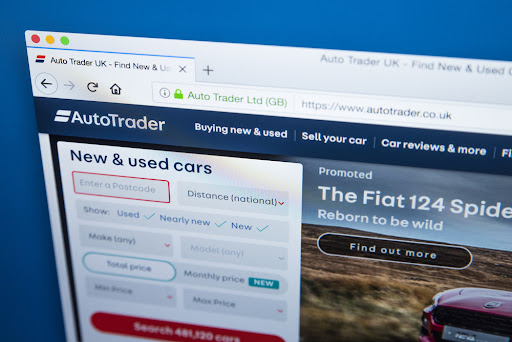
How to sell your car on Auto Trader
Auto Trader’s homepage gives you options to look for new or used cars, sell your car, or value your car. There are also links for car reviews, car leasing, and learning more about electric vehicles (EVs).
You start by creating an advert to list to either private buyers or trade buyers (car dealers). You’ll need photos of your car and a vehicle description that tells buyers about your car. As Auto Trader prompts, a detailed description in your ad will help your car sell quicker.
Auto Trader has a business-to-business dealership portal, as well as car listings for private individuals to browse and purchase.
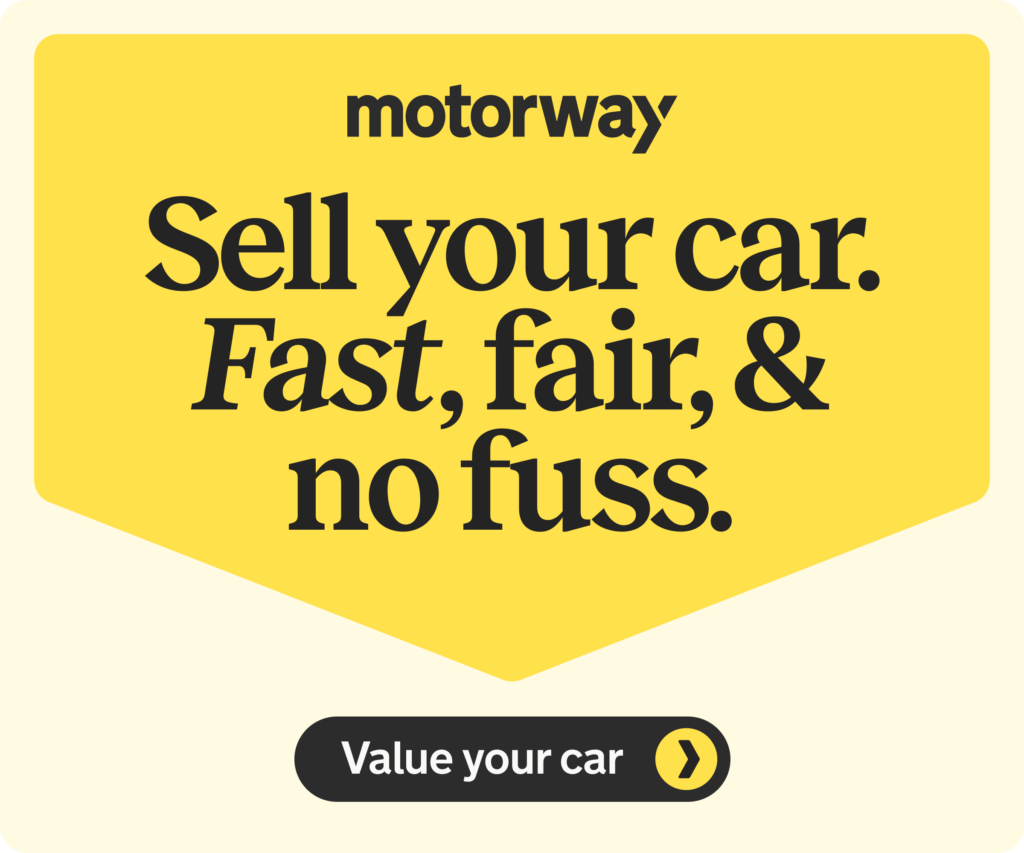
How it works
Creating your ad is simple and Auto Trader uses your registration and mileage to find your car’s details and auto-populate additional information such as the car class, door and seat number, engine size, transmission and fuel type, and owner history (e.g. ‘seven owners’).
Sometimes, vehicle features may have been filled in, but you can edit these as appropriate. It’s recommended to add as much detail on features as possible so buyers can get a sense of your car’s spec and driving experience.
Auto Trader automatically runs some basic vehicle checks, using data from the Motor Insurance Anti-Fraud and Theft Register, and Experian. This confirms whether your vehicle has been registered as a category write-off, stolen, scrapped, imported, or exported.
It’s up to you to add your photos and write a description for your car. It’s also up to you to set the price.
Auto Trader, like many online services, offers instant valuations. It’s advised you get a couple of valuations across multiple sites to help you pick the best price for your car, but you can also just stick to one.
In the Premium or Ultimate package advert, you can include a YouTube link. A short video with clips of your car from different angles can help a lot, especially if the model is less well-known, or if you want to show off your car’s excellent condition.
Once you’ve filled out all the fields of the advert, you can proceed and choose which ad package to purchase.
Admin fees and payments
All adverts on Auto Trader are paid, unless you’re privately selling a car for less than £1,000, which is free to list for one week.
There’s a sliding scale of pricing, depending on whether you’re based in Northern Ireland or Great Britain, whether you’re selling to trade or privately, and what the value of your vehicle is. In all cases, there are four ad packages available: Basic, Standard, Extended, and Ultimate.
The package you select largely dictates the length of time your ad will be live on Auto Trader. When you’re selling privately, your ad package can affect how detailed your advert can be, and how much it’s promoted within the classifieds.
With the huge number of listings Auto Trader has at any given time, you may worry that your car will be a needle in a haystack and fail to get noticed. This is an incentive to spend more on the ad package so you can make the most of all of Auto Trader’s features, and keep the ad live until the car sells.
It’s worth browsing the various packages to see what might offer you the best return on investment, and help your car stand out from the crowd.
How to sell your car on other free listing sites
Auto Trader is a large-scale private online marketplace for selling your car. However, if you want to sell your car privately, it’s not the only option you have.
Facebook Marketplace, eBay, Gumtree, Shpock, and Motors.co.uk offer alternative ways to bypass any middlemen and help connect private buyers and sellers. It’s likely you won’t reach the same volume of keen buyers using these alternatives, however, that doesn’t necessarily mean you’re less likely to sell your car for a decent price. In fact, selling within a smaller network might appeal to you more.
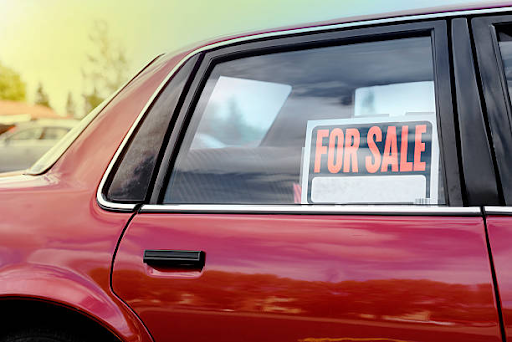
You’ll face several drawbacks as a private seller – no matter what company you sell through.
There’s no guarantee you’ll find the right buyer or get a good deal. There is also the low, but still worrisome, risk of being scammed by an unfamiliar buyer.
Ultimately, you are sourcing buyers through online networks and it’s up to you to make sure you feel comfortable sharing information and inviting buyers to view and test drive your car. On top of this, managing payments safely is of utmost importance. Once you have secured your sale, it will be down to you to transfer car ownership, or both you and the buyer could be subject to fines.
The process of finding a buyer privately, either on Auto Trader or elsewhere, can be lengthy and frustrating. Finding motivated, genuine trustworthy buyers the first time around can be challenging.
| Company | Fee-free listing | Safe, managed payment | HPI verification | Buyer collects in-person | Sale type |
| Auto Trader | ✓* | Classifieds & auction | |||
| eBay | ✓ | Classifieds & auction | |||
| Facebook Marketplace | ✓ | ✓** | Classifieds | ||
| Gumtree | ✓ | ✓ | ✓** | Classifieds | |
| Shpock | ✓ | ✓** | Classifieds | ||
| Motors.co.uk (selling through Gumtree) | ✓ | ✓ | ✓** | Classifieds | |
| Motorway | ✓ | ✓ | ✓ | ✓ | Car buyer |
* only with Instant Offer
** only when you set your listing as ‘collection only’
How it works
To sell your car on eBay, Facebook Marketplace, Gumtree, and Shpock, you first have to create a listing. Here you add plenty of photos and a video if you are able, and as much compelling information as possible. You can also do things like specify collection-only, or local delivery-only on most of these sites.
Your listing will be shown to fellow platform users, and only those with an account will be able to bid or purchase your vehicle. Some of these platforms have additional seller/buyer protections – such as eBay, which is also the only site in this group that offers secure payment through their platform.
When you sell on Facebook Marketplace, Gumtree, and Shpock, you have to handle the negotiations and payment yourself. On eBay, your car listing has a minimum purchase price (like Motorway’s reserve price). This helps avoid any time-wasters who offer less than you’re willing to accept.
Admin fees and payments
There are a number of fees and payments associated with these sites.
Facebook Marketplace
You can boost your advert by sponsoring the post on Facebook Marketplace. The more money you put behind your post, the more people it will reach.
eBay
eBay is free to list on but your final sale value (including postage and other fees) is subject to a 12.8% fee, and a fixed charge of 30p per order. If your total value exceeds £2,500, you have to pay a 3% fee on the value over £2,500.
Gumtree
It’s completely free to list your car on Gumtree. You can boost your advert to reach more people, and this will cost you between £5-£8 per week. Adverts have a set lifespan and when they expire, it is up to you to re-list the ad.
Instant online car-buying companies
Online car-buying companies (such as We Buy Any Car) have become some of the most popular Auto Trader alternatives. They take the hassle and stress out of the process of selling your car by securing a quick, instant sale online. In some instances, it takes less time for you to sell your car to an online buyer than it does to get an MOT at a local garage.
There are plenty of these companies around and each one offers a slightly different service. Instant car buyers traditionally offer a quick alternative to selling your car on a marketplace such as Auto Trader. As with everything though, there are pros and cons to be considered:
Pros
- You don’t have to place lengthy adverts
- You don’t have to market the car yourself
- You don’t have the stress of having buyers test drive your car
- You don’t have to worry about time wasters and tyre-kickers
- You can get a good price for your vehicle
- You have minimal hassle
Cons
- You likely won’t get market value
- You likely won’t get as high a price as you would privately
- You may still have to take your car to a specific site. Eg. We Buy Any Car
Note: As of March 6th 2024, instant car buyer Cazoo, pivoted their business model to stop buying and selling used cars and instead become a car marketplace to rival AutoTrader.
Read our complete guide for more information on the various admin fees and experiences that can be expected from different instant online car buying companies.
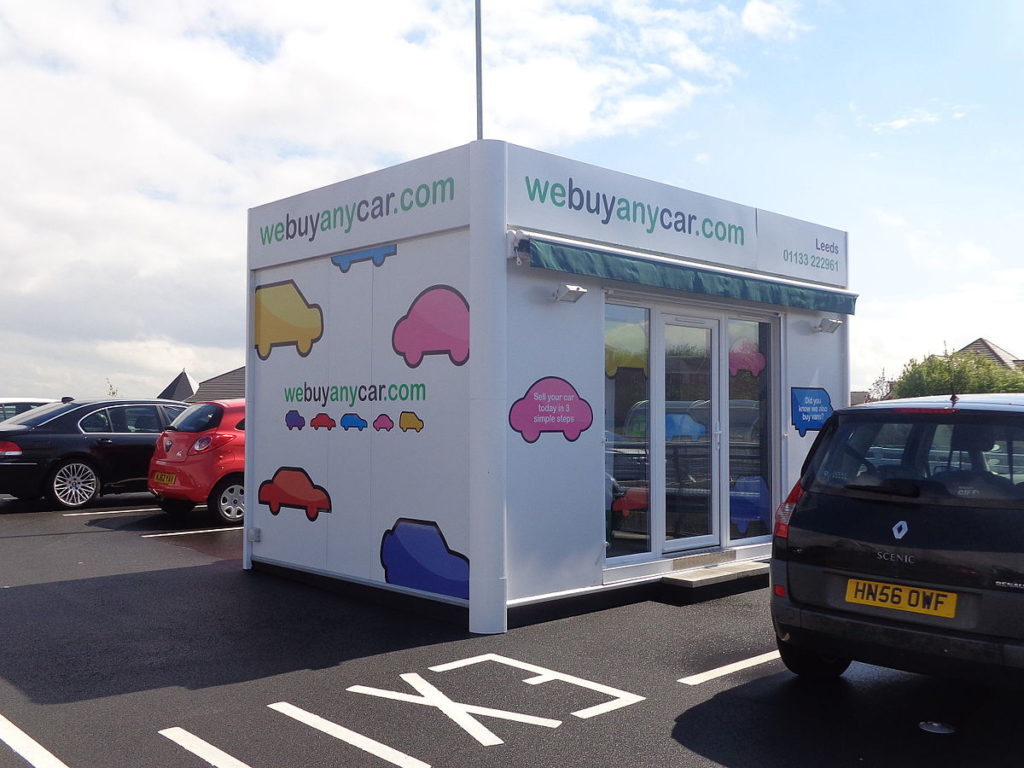
How it works
If you want to use an instant car buying website to sell your car, you start by entering your registration number and mileage on their website where prompted. Once you fill this out, you will receive an instant online valuation. If you’re happy with the price given, you can arrange an appointment for the buyer to inspect your car in person.
This is where it can become less ‘instant’ as it is entirely dependent on when you can arrange an inspection. Some will come to you, whereas others require you to take your car to a hub or local branch.
When your car gets inspected, if it has any undisclosed wear and tear, you will be asked to agree to a lower price. Then, the car-buying company takes your car and sends you the funds. In the case of WeBuyAnyCar, you’ll likely have to leave your car at the inspection centre and find another way to get home. Some companies work similarly, while others will pick up your car from home or work as agreed.
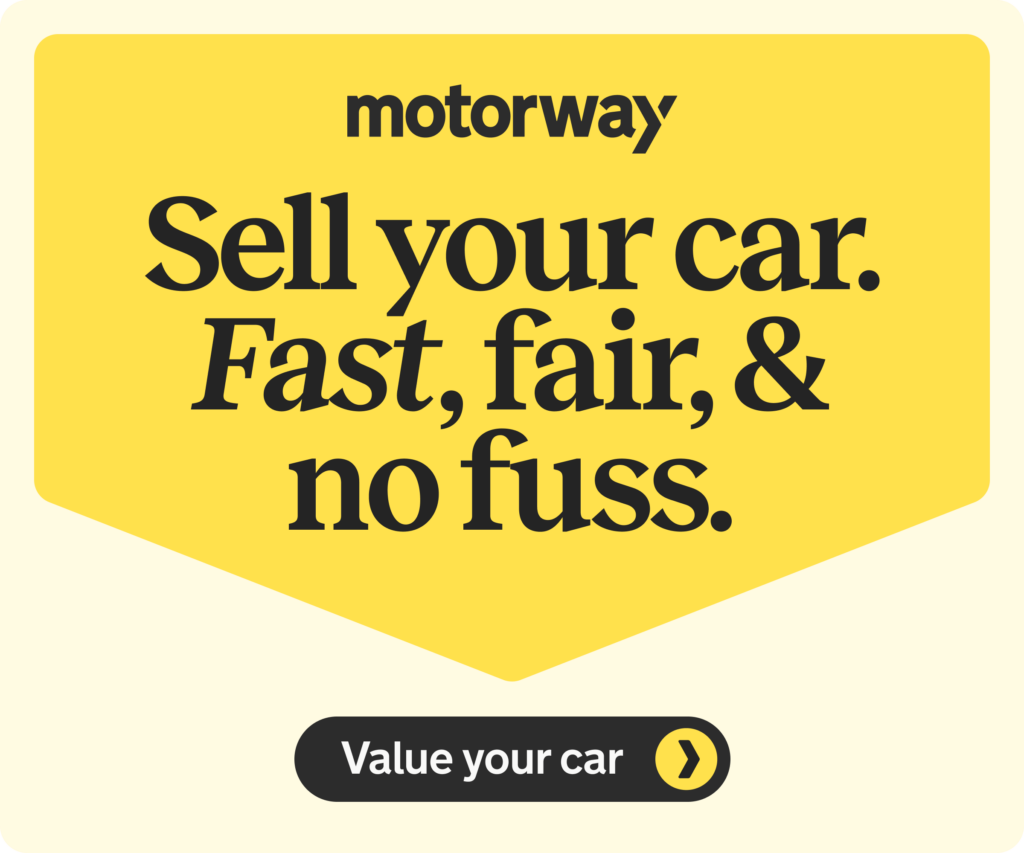
Admin fees and payments
WeBuyAnyCar has a transaction fee that applies at the point of sale. They vary depending on the final price of your vehicle and are:
- £0 for cars valued below £99.99
- £49.99 applies for cars valued between £100 to £3,999.99
- £59.99 applies for cars valued between £4,000.00 to £4,999.99
- £74.00 applies for cars valued at £5,000 or more
There are additional, optional fees if you want to receive your payment faster than the standard processing time (4 working days):
- Next working day payment is £24.75
- Same-day payment is £29.75
WeWantAnyCar offers no administration charge for cars that sell for less than £100. For vehicles with a purchase price of over £100, the admin charge is £99.
Money4YourMotors has the same pricing: no fees for cars that sell under £100, and a £99 charge for all other cars sold.
The Car Buying Group offers £50 extra for your car if you drop it off at one of their centres.
Meanwhile, when you sell your car with Motorway, dealers compete to give you their best price, and you don’t pay any fees or charges, and they’ll pick your car up from your home for free.
How to sell your car to a dealership
Since the 1950s, one of the most popular ways of selling cars has been to take them directly to a car dealer. Dealerships are split into two categories: independent and franchise. Independent dealers sell a range of car brands whereas types and franchise dealers are specialised to a specific car brand.
Auto Trader’s dealership portal also allows dealers to connect with both buyers and sellers – so you can sell your car to a dealer on Auto Trader.
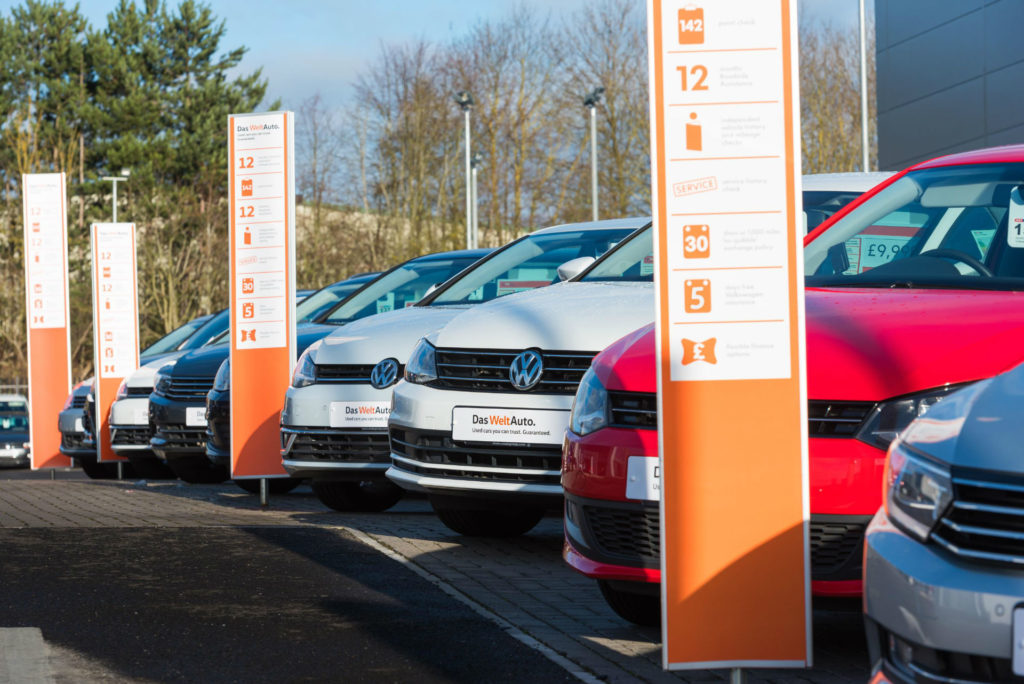
Dealers can buy your car outright, or you can get a part exchange against your next car. Before the internet, dealerships were the go-to option for car sellers as they generally offered a fair price and minimal fuss. People would drive from forecourt to forecourt to see where they could get the best price.
Before selling to a dealer, you should make sure you have all the information they could want about your car at your disposal. This includes:
- Purchase history
- Service history
- Any other form of documentation that shows you’ve taken good care of your car
If you’re selling to a dealer, it’s advised you should have had your car recently valued and serviced so you have a proper understanding of your car’s true worth and condition. This will help you to assess the offers you get for your car, and give you better negotiating power.
As dealerships make profit based on margins, it’s unlikely you will get an offer as high as your car’s full valuation level. You can try and get the offer price as close to the valuation price as possible by ensuring you’re attending dealerships genuinely interested in your vehicle. For example, there’s little point trying to sell a Land Rover to a MINI-franchised dealership, or a nippy city car in a very rural region.
All car dealers want to sell cars that retail at £10,000 or more for the most margin, so if your car is in good shape, and a highly desirable model in the used marketplace, you have a chance of getting a great price.
How it works
Start by calling some local independent and manufacturer-specific dealerships in advance, to see if they seem interested in your car.
There are some prep steps we recommend for anyone selling their car listed below. These go a long way in securing a good deal from car dealers:
- If your car is nearly new, you may be able to get much more for it if you sell it before the next plate changes (these happen in March and September in the UK).
- Repair cosmetic damage like chips and scratches before you go to dealerships, as it can cost you less than the money dealers may take off the price of your car.
- Make sure to clean your car inside and outside
- Sell as soon after your MOT as possible, and gather as much of your servicing history as possible. Proving the health of your car will give dealers confidence.
For more maintenance tips, read our guide on keeping the value of your car as high as possible.
If you drive to a dealer who makes you an offer you’re happy to accept, you may even be able to sell the car there and then, leaving it behind. You can agree these details with your dealer, and they’ll make payment and advise on the administrative steps you need to take to transfer ownership.
Admin fees and payments
There shouldn’t be any fees or payments applicable when you sell your car to a dealership. You simply take payment by whatever means you and the dealership administrators agree on, and the sum will be as negotiated.
How to part-exchange your car
Another way to sell your car quickly at a dealership is to trade it in for a new (or, at least, new-to-you) car.

How it works
Prep your car in the same way you would if you were looking to sell it outright to a dealer. Again, you can visit a few dealerships to make sure you’re getting the best part-exchange possible. Part-exchange generally depends on what cars dealerships have on their system available to them. It is well worth doing your research as different dealerships will be able to offer you different makes and models for your trade in.
With part exchange, you pay the difference between the value of your old car, and the price of the new car.
For example, a dealer might value your car at £10,000. The new car you want could be valued at £20,000. Therefore, if you part-exchange your old car you will get £10,000 off the new car’s value.
Each dealership will make their own offer, so visit a few to ensure you’re getting the most favourable valuation for your car.
Comparing offers and deciding on what suits you best is where the difficulty lies. Different dealers will offer you different offers and it’s up to you to decide whether you want to get the most for your old car, get a new car for a lesser price or whether you want to save money by paying the least difference.
Admin fees and payments
The payment you make when you part-exchange will be whatever difference there is to pay on the new (or new-to-you) car. If you’re part-exchanging as part of a PCP contract, the payments may look a little different. For more information, read our guide on part-exchanging a car on finance.
Whatever the case, there shouldn’t be any confusing charges or fees beyond the vehicle prices you’re offsetting against each other.
How to scrap your car
If your car is older (at least 10 years old), has high mileage, is a write-off, or generally hard to sell, there is an option to scrap it. For more specific information on this, read our ultimate guide to scrapping your car.
Scrapping a car is unlikely to make you more than £500 – though this varies. If you know how to safely break down your car into parts and sell them individually, as well as selling the shell, you could fetch more.
Compromise is possible with scrapping as in some instances, owners can remove and sell the highest-value parts, and still offer the rest of the car to a scrap merchant. Worth noting is that you’ll likely get a similar price for the shell as you would have for the complete car. The expensive parts worth selling separately are:
- The engine
- The gearbox
- Airbags
- Seats.
The best and biggest marketplace to sell these parts is eBay.
At Motorway, we also work with a partner to provide a scrapping service. If you’re thinking about scrapping your car, enter your reg and mileage on our dedicated scrap my car page to be directed.
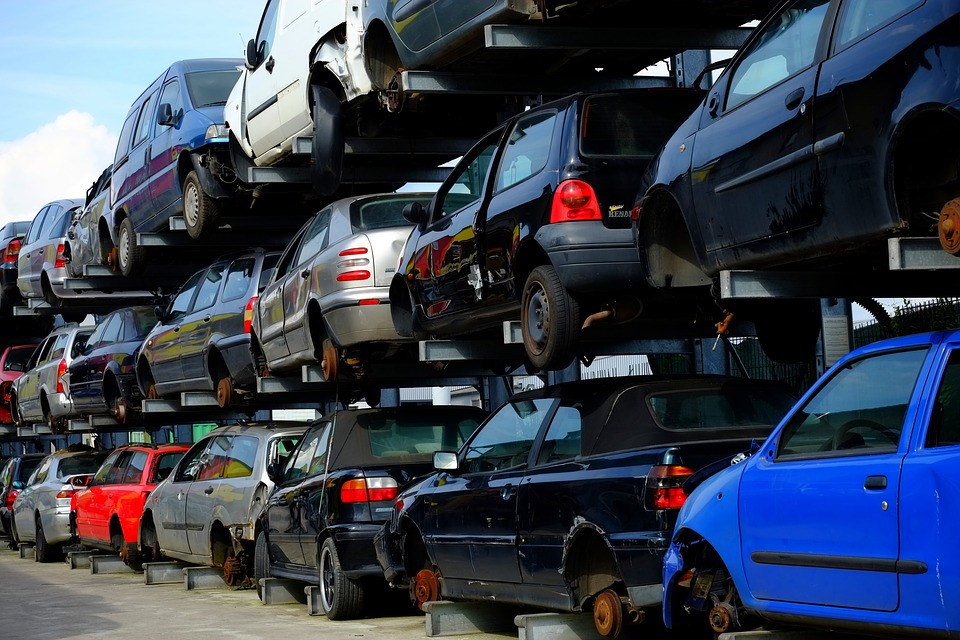
How it works
When you scrap your car, you can either find a private company, or you can find an authorised treatment facility (ATF) that will scrap your vehicle and pay you the scrap value – usually by cheque.
Admin fees and payments
Typically, when you scrap your car, you will be offered one sum that represents the scrap value minus any deductions. You can normally expect £100-£1,000 for your scrapped vehicle, the most common price being around £500.
Selling your car the Motorway way
When you sell your car the Motorway way, more than 5,000 dealers compete to give you their best price. You can sell your car to motivated buyers without even leaving the house. It’s completely free for you, and you can get a sale agreed in as little as 24 hours.
We’ll give you all the necessary tips to profile your car while it’s looking its best and likely to fetch a great price.
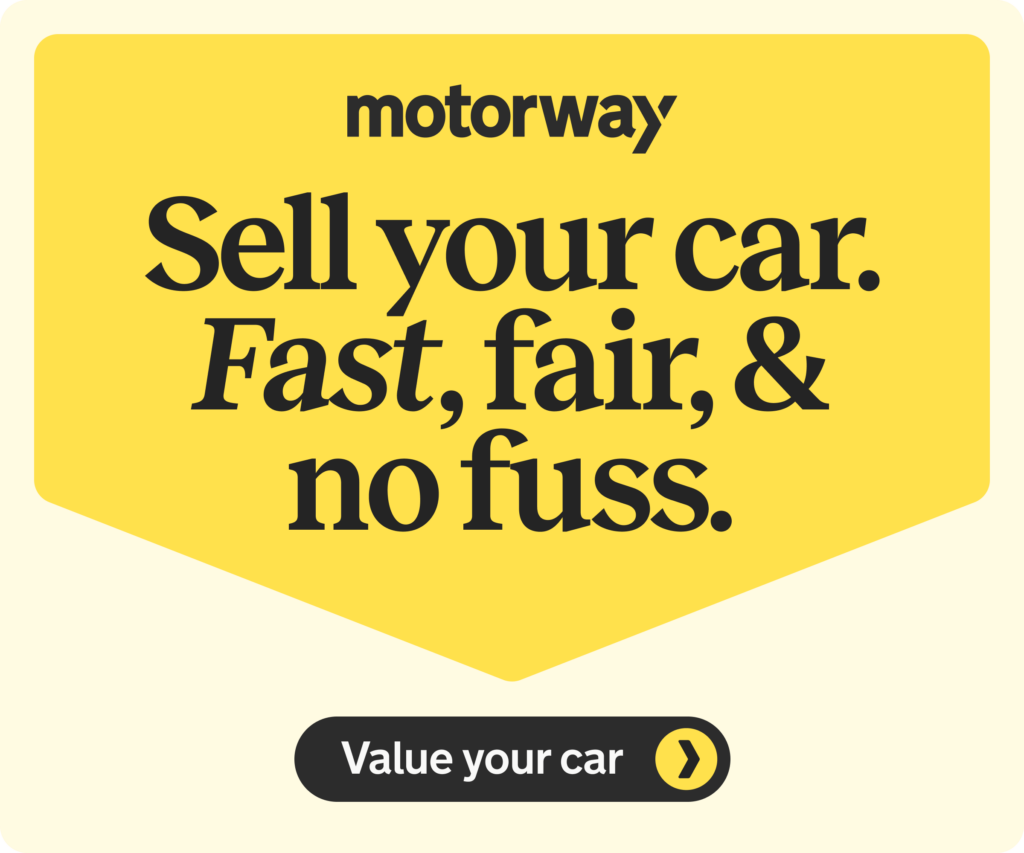
How it works
Just enter your reg on the homepage and you will be provided with an instant estimated sale price based on up-to-the-minute market data. We’ll then ask you a few easy questions about your car and guide you through the photos you need to take to complete your vehicle profile. It can be done right from your phone – in a matter of minutes.
If you choose to enter your car into a daily sale, it will be shown to our nationwide network of more than 5,000 verified dealers looking to add to their stock of used cars. Interested dealers will then compete to buy your car, offering you their best price.
In as little as 24 hours you will receive your best offer – and, if you choose to go ahead with the sale, your car will be collected for free by the dealer and the money will be quickly and securely transferred to your bank account.
Admin fees and payments
We charge you, the car seller, absolutely nothing. You’ll receive payment in your nominated bank account when the dealer collects your car.
Is it time to sell your car?
Want to learn more about owning, maintaining, and selling your car? Check out more of our guides here, covering everything from finding buyers, to negotiating a good price, and completing payment safely.
- Sell your car with Motorway
- How to get the best price for my car
- How to sell a car using an online car buying site
- How to sell a car without a V5C
- What documents do I need to sell my car?
- How to sell a car on finance: step-by-step guide
- The DVLA and selling your car – ultimate guide
- How to sell your car with free collection
- WeBuyAnyCar alternatives
- The UK’s bestselling cars – what cars were selling well in 2022?
- When do the ’23 number plates come out?
- Top 15 ways to cut your Motoring costs
- How to sell my Ford — the ultimate guide
- How to sell my Vauxhall — the ultimate guide
- How to sell your Nissan — the ultimate guide
- How to sell your Hyundai — the ultimate guide
- How to sell your Renault — the ultimate guide
